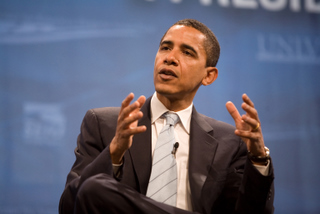The Politics of National Security

Before the election, there was a lot of debate about whether Obama could change the politics of national security - taking measures that democrats traditionally favored (foreign aid, unilateral diplomacy, etc.) and making the public realize how essential they were to advancing America's interests.
It's not clear yet whether Obama can refashion those perceptions, but Rasmussen has some interesting numbers that suggest that Obama is getting kudos for the exercise of America's military power:
Sixty-one percent (61%) of U.S. voters agree with President Obama’s decision to put more U.S. troops in Afghanistan.Twenty-five percent (25%) are opposed to putting more troops in the war-torn country, and 14% are not sure in a new Rasmussen Reports national telephone survey.
Republicans are more supportive of the president’s action than are members of his own party. Seventy-two percent (72%) of GOP voters support the decision to send more U.S. troops to Afghanistan, compared to 54% of Democrats. Sixty percent (60%) of voters not affiliated with either party agree.
What we've seen these past several weeks has belied the caricatures on the right and deflated some of the hopes on the left about how Obama would steer the ship of state. He's offered to reinvigorate diplomacy with Iran and Russia while proclaiming an end to the Iraq war, yet continues to rain Hellfire missiles down on al Qaeda in Pakistan and will surge additional forces to Afghanistan. This isn't so much redefining the politics of national security as muddying the waters.
---
Image under Creative Commons Attribution - ShareAlike 2.0 License



